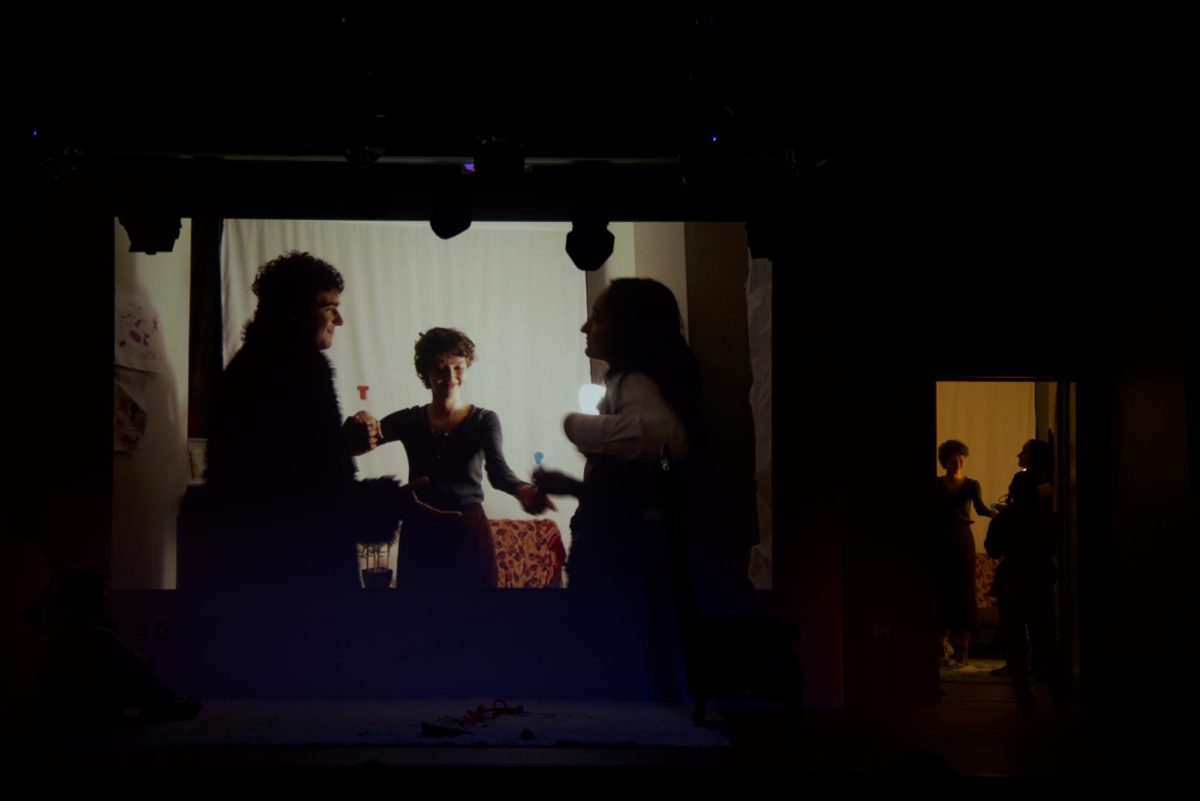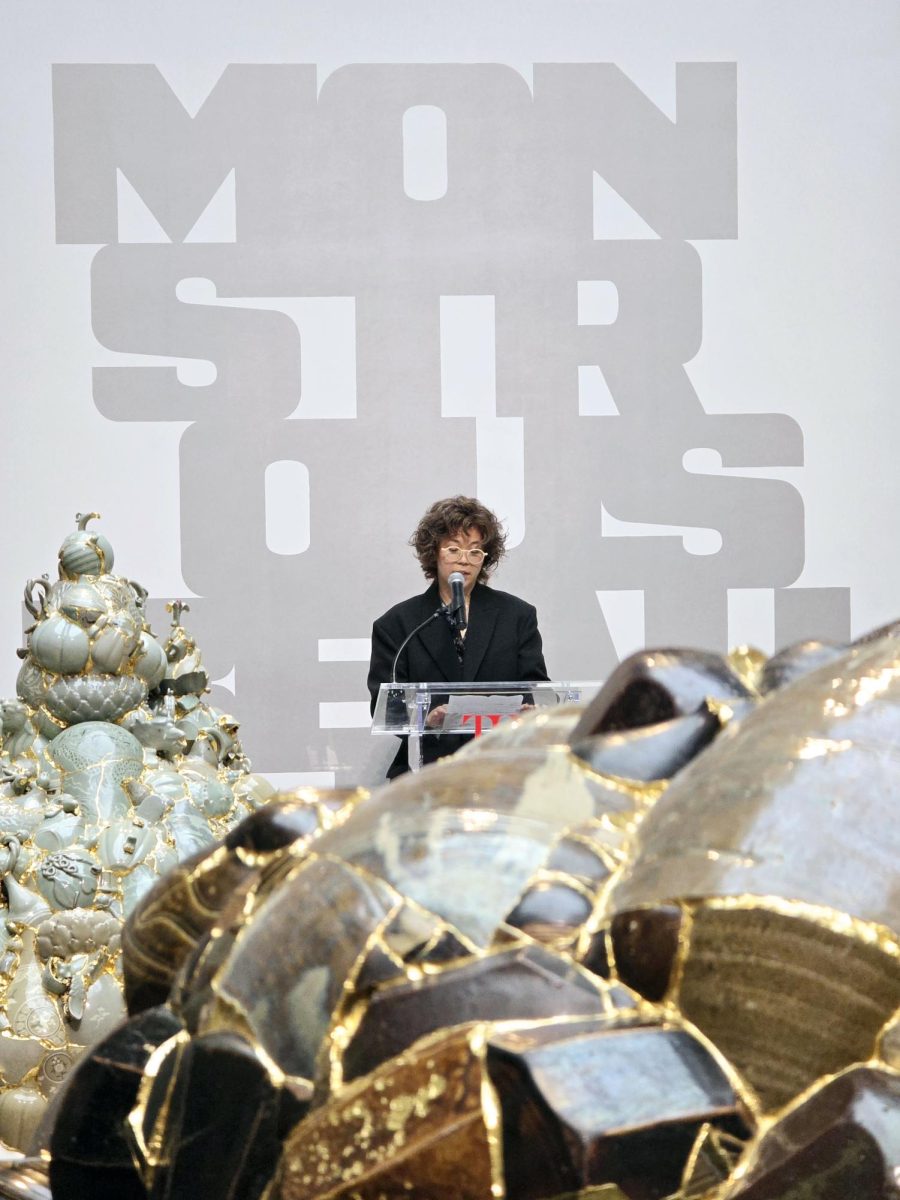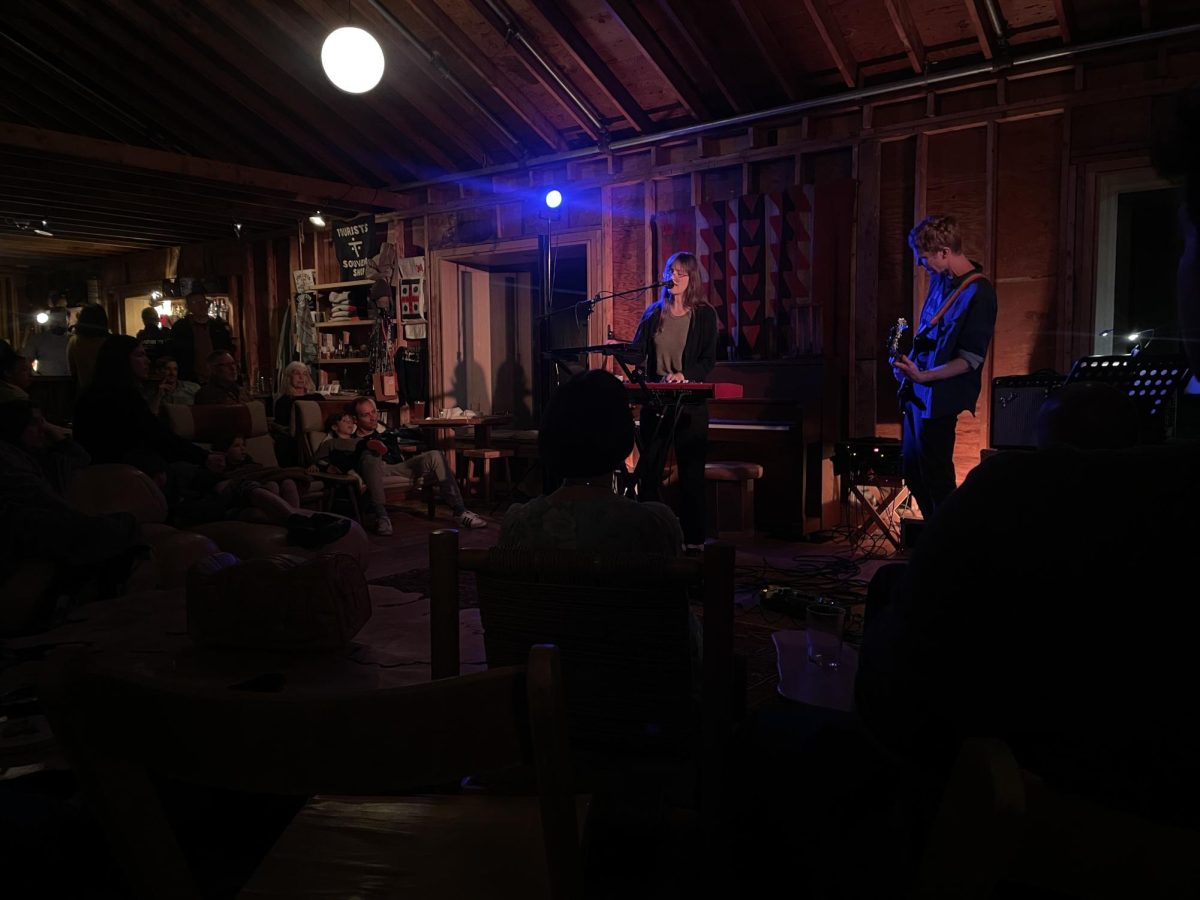
The Classics department hosted an evening of ancient-Greek-inspired music at the Brooks-Rogers Recital Hall last Thursday. The event featured both Visiting Assistant Professor of Classics Marissa Henry’s folk/rock/pop songs and a performance by The Call of Kinnaru, a “new ancient Greek music” group based out of University of Vermont (UVM) in Burlington, Vt., frontlined by UVM Program Director and Professor Of Classics John Franklin.
“New ancient music” is a niche genre consisting of musical compositions that approximate original performances of ancient songs to appeal to a modern audience. The use of instruments from antiquity is essential to this practice. Beyond voices, the Call of Kinnaru’s performance featured an “aulos,” lyres, and frame-drums. Perhaps the most unusual of these is the aulos, a double-reed instrument with two pipes, one held in each hand and both played at the same time. Similar to an oboeist, an aulete — the player of an aulos — creates sounds by blowing into the mouthpiece while covering and uncovering a set of three or four finger holes.
“I like to say that the most beautiful instrument is a well-played oboe and the worst sounding instrument is a poorly-played one,” Abigail Bradford, The Call of Kinnaru’s current aulete, said. “Essentially, you’re trying to play two [oboes] at the same time.”
The instrument demands intuition, Bradford explained. “You can feel the vibrations when the notes are out of tune, and then when it gets in tune, it settles,” she said. “So you’re constantly sort of fighting with yourself and with your instrument, trying to keep things in tune and keep things together.”
While some of the group’s instruments — such as the frame-drums — are easier to play due to their continued use in modern musical traditions, others — such as the aulos and lyre — require more investigation.
“We have vase paintings and other images that show hand positions, so you can make some deductions from that, although I would say the written sources are maybe more informative about the variety of lyre techniques,” Franklin said. “Then there’s also physical instruments that have been found in Egypt, for instance, some in Greece, which also give you some information about reconstruction.”
The first part of The Call of Kinnaru’s performance consisted of two sections from an ancient song with surviving notations. Known today through an inscription at the Athenian Treasury at Delphi, “Athenaois Paian” is one of only about 60 notated musical pieces remaining from ancient Greece. In its reconstructed form, the piece is a lilting yet primal song. “What the notation gives is the pitches of the melody, and then the poetry preserves the rhythm of the melody,” Franklin said. “The tune, effectively, is what we have in the notation, and everything else that we add around it, like chords or the drumming, all those things are modern interpretive elements that are put in.”
The rest of the performance consisted of Franklin’s compositions for songs from antiquity such as “Sappho 1,” “Epicletic Hymn” from Aristophanes’ Clouds, and a suite of songs from Euripides’ Helen. “I look at all the philological scholarly engagement, which I do try to honor and incorporate as much as I can,” Franklin said of his compositional method.
The Call of Kinnaru’s formation can be traced back to a 2018 production of Euripides’ Helen at UVM, Franklin explained. That performance included an original score played by a pit band that included Franklin and Jamie Levis, the group’s drummer. Rachel Fickes, one of the group’s vocalists and lyrists, attended the performance as a senior in high school and was inspired to learn the lyre as an undergraduate at UVM.
Henry, a scholar of classical Greek literature and the main organizer of Thursday’s event, also brought her own music to the evening. Following The Call of Kinnaru, Henry performed several of her own ballads. The songs performed were taken from two EPs she recorded as a graduate student at the University of California, Berkeley — All the Other Girls, a collection of songs about female characters from the Odyssey, and Greener than Grass, which consists of songs based on Greek lyric poetry.
Soaring above the gentle sound of her lyre, Henry’s voice carried the stories of Calliope, Calypso, and other mythological figures. “I just find [ancient poetry] very beautiful and I enjoy the process of … making a version for myself and for the modern age of these same kinds of images and characters and ideas,” she said.
Henry sees her musical work as an opportunity to bridge creativity with her academic interests. “[As a scholar,] I’m working on these poems [and] trying to make arguments about them in a logical way, but they’re also very powerful, so that sometimes spills over into the creative and emotional part of my brain,” Henry explained. “I started taking these things as jumping off points, like, I find this thing from the Odyssey really moving, I want to try to express that. That was, for me, a really productive kind of limit to come up with.”
Henry, however, said her music is more of a modern take on rather than a reconstruction of ancient music. “I don’t study ancient music academically, so I’m not really equipped to do that,” she said. “My music is much less constrained by scholarly concerns.”
The standards for the genre are not rigid, and Franklin explained that the audiences for “new ancient music” can be hard to please. “This guy I know from the conservatory, I played him some of the stuff and he’s like, ‘Oh, that’s fun, but when are you going to write some of your own music,’” he said. “Then, conversely, you play for the more severe scholarly colleagues, and they’re like, ‘Well, that’s not real ancient music.’ So what is it? Is it creative? Is it philological?”
“Ultimately, you have to say, ‘Well, this is not what Euripides wrote, you know, this is my version of it,’” Franklin continued. “I tried to make it as close as I could, and I filled in the gaps according to my own judgment, taste, and ultimately, it is a creative process.”
Correction: A previous version of this article incorrectly spelled Rachel Fickes’ last name as ‘Ficketts.’ The article was updated to reflect this change on April 23 at 5:37 p.m.








